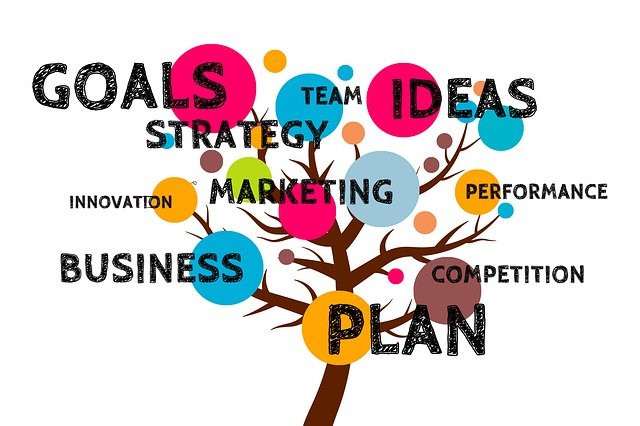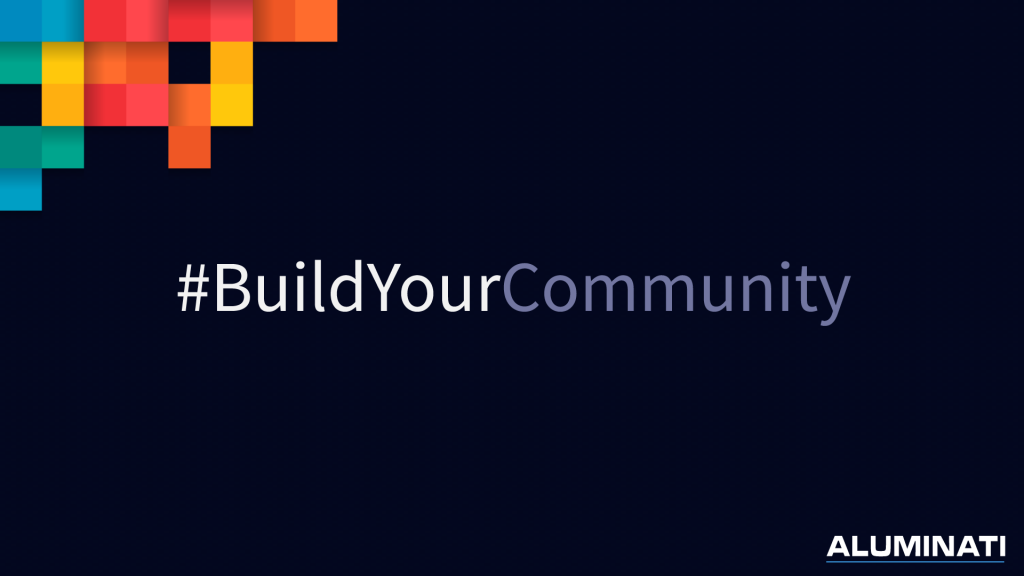One of the most effective ways to market your institution is through alumni advocacy. Instead of focusing on spreading awareness yourself, you can use your alumni to act as advocates on behalf of your institution. This helps you generate more authentic and powerful awareness and engagement.
Alumni advocacy should be a major goal for any alumni engagement program. With strong alumni advocacy in place, all of your alumni strategies, from fundraising to volunteer participation, will be heightened. This all comes down to developing a highly engaged alumni network.
In this guide, we’ll explore what alumni advocacy is and how your organization can develop a strong alumni advocacy program.
Find out how Aluminate Community Builder can help you build your community.
What is Alumni Advocacy?
Alumni advocacy is the term used to describe when your alumni speak highly about and recommend your institution. Alumni advocates act on behalf of your institution, where they spread brand awareness and help you develop a strong reputation.
Introducing alumni ambassadors and advocacy programs can help to increase the amount of content and referrals that alumni share about an organization. The idea is to get your most engaged alumni to act as advocates. This increases your reach, and it allows for more authentic recommendations and content being shared.
The most simple form of alumni advocacy would be your alumni sharing your content on social media, or the likes of LinkedIn.

How to Introduce an Alumni Advocacy Program
An alumni advocacy program can be one of the most effective and useful strategies for alumni marketing. Here are a few important steps to help you get started with alumni advocacy.
1. Determine the Program’s Focus
The first step is to understand which area the alumni advocacy program will be centered around. The program could be open to all university alumni, or it could be aimed at only a single niche alumni area (I.e. new graduates, mature alumni, existing donors, and so on).
By understanding exactly who the alumni advocacy program will be targeting, you’ll be able to create more relevant marketing content to attract, entice and impress them.

2. Determine the Goals of the program
Alumni advocacy is not only about spreading general brand awareness. You could run targeted alumni advocacy campaigns geared towards specific goals.
For example, you might want to focus the program on fundraising efforts or try to drive up admissions through your alumni network. Having a clear goal to start with will help you develop a more targeted and effective alumni advocacy program.

3. Create the Right Alumni Advocacy Content
Now that you have identified your audience and your goals, the next step is to formulate valuable content to share with your audience.
The more relevant the content, the greater your alumni engagement will be. The more engaged your alumni are, the more they are likely to refer back to your institution – and ultimately, the more effective your advocacy program will be.

4. Spread Awareness to Your Alumni
You have the content, so now the next step is to start getting your alumni actively involved. This will involve marketing directly to them.
Your organization can achieve this through traditional marketing channels. Some of the most effective options include email newsletters, social media updates, and any other marketing channels that you already use for alumni engagement.
Using the right alumni networking platform will enable you to get your alumni actively involved. And you will also be able to target specific areas of your alumni network and increase engagement between your alumni.
An effective platform will allow you to share content, encourage your alumni network to get involved in engaging with this content and send targeted communications to specific alumni.
The more consistently you promote your alumni advocacy content, the more effectively you will be able to generate alumni advocacy.

5. Increase Engagement With Incentives
If you want to earn more participation and engagement, consider including strong incentives, or member benefits, to help your alumni share your content. By including incentives, you’ll be able to attract more support for your marketing efforts. This can help you to develop a greater level of alumni advocacy.
Some incentives could include special invitations or tickets to events, branded merchandise, special access to certain content, or anything else that would help you attract the attention of your alumni.
Offering branded merchandise is a great strategy because it not only adds an incentive but the branded merchandise also acts as a tool for promoting your institution.

6. Build a Strong Alumni Network
One of the best ways to build an engaged alumni community is to develop a strong network. This will help to create relationships between alumni as well as your institution.
To achieve this, you should focus on making networking convenient and accessible. Use an online alumni platform that makes it easy for alumni to connect and communicate with each other. Introduce alumni mentorship programs, host industry-specific alumni networking events, and maintain this engagement year-round.
The more engaged your alumni are with each other, the greater the levels of alumni advocacy will be.

How Does Alumni Advocacy Increase Engagement?
Alumni advocacy marketing is centered around sending innovative content to your alumni. Executing this effectively will help you generate more engagement and develop stronger advocates for your institution. Here are three of the major reasons why:
It Provides Continous Engagement
One of the biggest goals for institutions reaching out to their alumni is for fundraising purposes. This type of alumni engagement strategy can feel one-sided, which prevents alumni from getting fully engaged.
However, with an ongoing alumni advocacy program, you will be engaging with your alumni year-round. By sharing the type of content that interests them and getting them actively involved in the alumni network, you will be able to generate consistent engagement from your alumni.

Keeps Alumni Informed
An alumni advocacy program should aim to consistently send news and updates to your alumni. Keeping alumni up to date is important for driving consistent and meaningful engagement.
Matches the Interests of All Alumni
An alumni advocacy program should be completely flexible to match the interests of different alumni. Instead of running a single advocacy program, your institution can run multiple alumni advocacy programs targeted at different alumni groups.
Using this tailored approach will help you create more targeted content for specific alumni packs. This means they will care more about what you share, which will result in greater levels of engagement. The more flexible you are able to make your alumni engagement efforts, the more rewarding they are likely to be.

Conclusion
The art of alumni advocacy comes down to sharing valuable and innovative content with your alumni. This will encourage participation and engagement, both in referring your institution and creating highly engaged alumni networks.
A highly engaged alumni network is one of the most valuable assets for any institution. By following the right alumni engagement strategies and using the right alumni engagement platform, you will be able to develop a strong network of alumni advocates. This will offer many long-term benefits for your institution.





